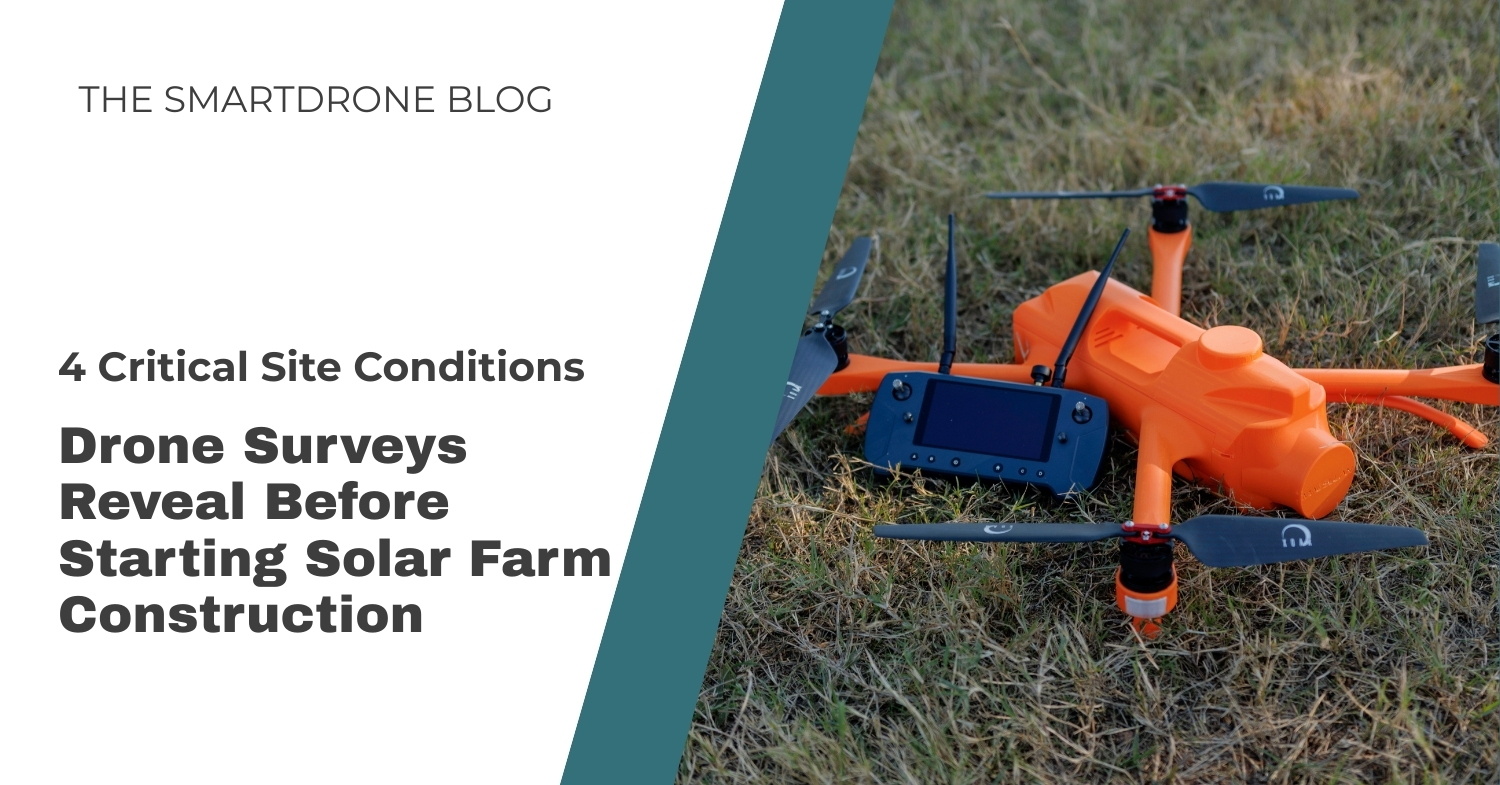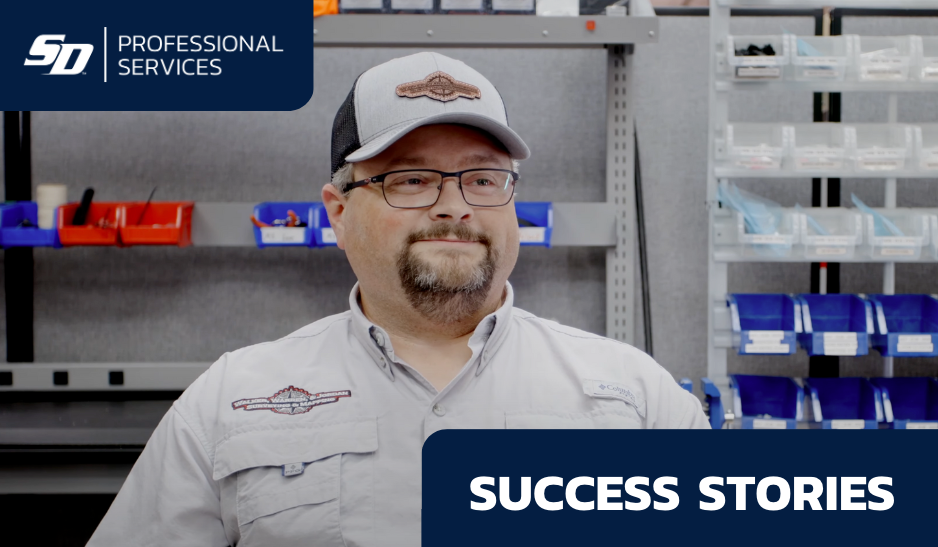You've seen the proposals. Three different drone survey providers, all claiming survey-grade accuracy, fast turnaround, and competitive pricing. On paper, they look identical. Six months later, one of them has your project stuck in limbo with unusable data, missed deadlines, and a client questioning whether you know what you're doing.
The difference between providers who accelerate your work and those who undermine it comes down to specific, verifiable qualities you can evaluate before signing anything. Some talk a big game but crumble under pressure. Others deliver exactly what they promise, every single time.
Here's how to tell them apart.
Quality #1: Documented Survey-Grade Accuracy
Anyone can claim their data meets survey standards. Professionals prove it with numbers.
What to Request
Ask for documentation showing how accurate their surveys actually are. Reports should include RMSE values, ground control verification, vertical accuracy reporting, survey control tie-in validation, and performance data against known coordinates. If a provider hesitates or offers vague assurances instead of hard numbers, you're looking at someone who can't back up their claims.
What Professional Systems Deliver
Professional drone systems routinely achieve accuracies that are survey-grade, reliable, and repeatable when deployed correctly. The equipment matters, but proper ground control implementation and rigorous processing workflows matter more.
A provider using the latest survey-grade platforms with sloppy procedures delivers inconsistent data. One using solid equipment with disciplined quality control gives you results you can stake your reputation on.
READ MORE: The Importance of Accurate Drone Surveys
Quality #2: Direct Experience with Your Project Type
Not all drone survey projects are created equal. What works for a flat construction site fails spectacularly on steep, wooded terrain. The environmental report your engineers accept won’t meet the standards required by regulatory agencies.
Match Provider Experience to Your Needs
Request project examples that mirror your specific requirements:
- Sites with dense vegetation need providers with proven LiDAR ground-penetration capability
- Regulatory projects require documentation that meets agency requirements
- Understanding the nuanced nature of various terrain types demands experience
- Engineering projects need precise elevation models and construction-ready deliverables
The Cost of On-the-Job Learning
Providers learning from your project bill you for their education. Missed requirements force project restarts. Unnecessary reflights double timelines. Deliverables that don't meet specifications create rework. Out-of-region providers underestimate local conditions until your budget absorbs the cost.
A provider who operates in your region understands how local terrain and ecology affect equipment performance, when seasonal weather creates optimal conditions, and which terrain features consistently cause problems.
READ MORE: What is Drone Surveying & How Does It Compare to Traditional Land Surveying?
Quality #3: Workflow-Compatible Deliverables
Your software and processes shouldn't bend to accommodate a provider's standard outputs. The data you receive should integrate seamlessly with how you already work.
Integration That Actually Works
Providers who actually deliver on this don't hand you generic file packages and wish you luck. They ask about your specific software, understand what your team needs for analysis, and adapt their deliverables accordingly. Point clouds and linework should import directly with correct coordinate systems, appropriate layer structures, and proper georeferencing.
Spending half a day reformatting data before analysis begins isn't just inefficient—it's a workflow failure costing you billable time.
Flexibility Across Project Phases
Different project phases require different data types:
- Early site analysis: High-resolution imagery for visual documentation
- Engineering design: Precise elevation models and detailed linework
- Construction planning: CAD-ready files that integrate with existing design software
Providers offering both LiDAR and photogrammetry capabilities adapt to your shifting needs without forcing you to coordinate multiple vendors.
READ MORE: What Are the Different Drone Capabilities? LiDAR, Orthoimagery & Linework Explained
Quality #4: Proactive, Honest Communication
Technical failures are recoverable. Communication breakdowns destroy projects and relationships.
Realistic Timelines
Unrealistic turnarounds create cascading problems. The right partners provide accurate timeframes based on actual project complexity, weather realities, and processing requirements. They communicate immediately when conditions change, not after a deadline passes.
Support When You Need It
Working with comprehensive datasets raises questions, particularly for teams new to interpreting results. Reliable partners help you understand deliverables and resolve integration issues. Transactional vendors disappear once they're paid.
Watch for providers who avoid direct answers about timelines or dodge questions about past project challenges—they rarely improve once you're under contract.
Quality #5: Comprehensive Service Capabilities
Sites present unexpected challenges. Clients request additional analysis. Regulatory requirements expand mid-project. Partners with broad capabilities adapt without forcing you to find supplemental providers.
What Comprehensive Really Means
Look for providers offering capabilities across surveying applications:
- Volumetric analysis for earthwork and stockpile measurements
- Both LiDAR and high-resolution photogrammetry for different terrain types
- CAD-ready linework that integrates directly into design workflows
- Integrated ground control services
Why Breadth Matters
This prevents a common problem—you establish a working relationship for standard topographic work, then discover the provider can't handle specialized requirements when your project scope expands.
READ MORE: 5 Common Drone Surveying Mistakes and How to Avoid Them
Quality #6: Maintained Equipment and Operator Expertise
Technology evolves quickly in drone surveying. Providers who invest in equipment maintenance and ongoing training deliver consistently better results than those running aging systems with stagnant expertise.
Questions to Ask
Ask about maintenance schedules, calibration procedures, and how they keep equipment up to date. These details reveal whether a provider commits to consistent quality or just maximizes ROI from outdated or undermaintained gear.
The Operator Factor
Experienced operators catch flight planning issues before they become processing problems. They adjust collection parameters during setup when site conditions demand it, rather than discovering problems during data review that force reflights.
These real-time decisions prevent the delays and additional costs caused by less experienced operators.
Quality #7: Transparent, Defensible Pricing
Understanding how providers structure pricing helps you evaluate total project value rather than just comparing initial quotes.
What Clear Pricing Includes
- Base services and what's covered
- Additional costs for specialized capabilities
- What's included in deliverable packages
- How site complexity affects final costs
Beyond the Bottom Line
The cheapest option often becomes the most expensive choice. Data that fails accuracy verification forces reflights. Timelines that slip by weeks push back dependent work and strain client relationships. Support that evaporates when you need help leaves you scrambling to solve problems alone.
Evaluate pricing alongside accuracy guarantees, realistic schedules, deliverable quality, and post-delivery support to understand what you're actually buying.
Conclusion
Surveying firms that care about winning more profitable work need partners that deliver on what they promise. The seven qualities above set providers apart from vendors who create expensive problems.
SmartDrone built our drone surveying services around these qualities because we've seen what actually matters to surveyors and civil engineers. We operate nationwide, delivering survey-grade LiDAR and photogrammetry data with integrated ground control services and American-made drone systems designed specifically for professional land surveying workflows.
Ready to evaluate a drone survey partner who can answer every question on this list? Contact SmartDrone to discuss your next project.
.jpg)


.jpg)